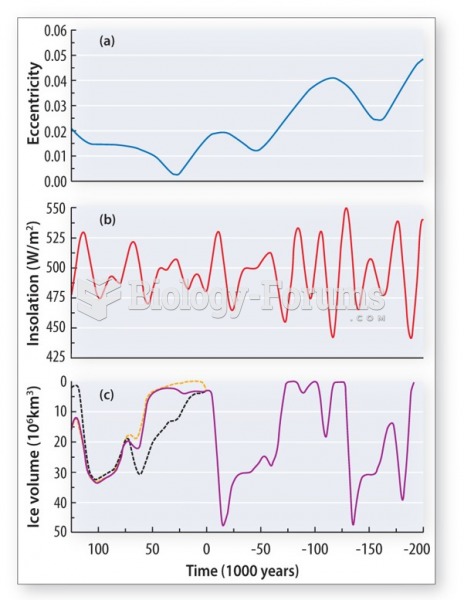|
|
|
The oldest recorded age was 122. Madame Jeanne Calment was born in France in 1875 and died in 1997. She was a vegetarian and loved olive oil, port wine, and chocolate.
Liver spots have nothing whatsoever to do with the liver. They are a type of freckles commonly seen in older adults who have been out in the sun without sufficient sunscreen.
Bacteria have been found alive in a lake buried one half mile under ice in Antarctica.
Nitroglycerin is used to alleviate various heart-related conditions, and it is also the chief component of dynamite (but mixed in a solid clay base to stabilize it).
About one in five American adults and teenagers have had a genital herpes infection—and most of them don't know it. People with genital herpes have at least twice the risk of becoming infected with HIV if exposed to it than those people who do not have genital herpes.
 Meta-analysis of 18 studies shows that aerobic exercise causes better performance in older adults on
Meta-analysis of 18 studies shows that aerobic exercise causes better performance in older adults on
 Is the self the same as the brain? Materialists contend that in the final analysis, mental states ...
Is the self the same as the brain? Materialists contend that in the final analysis, mental states ...




